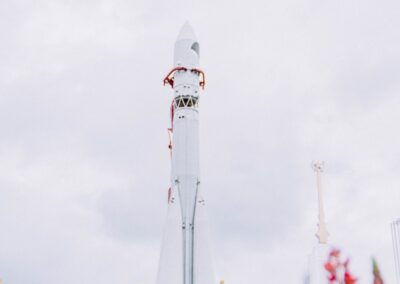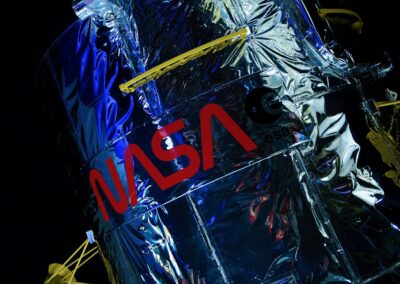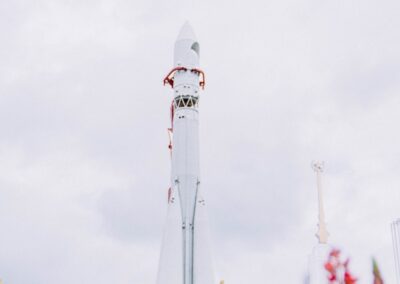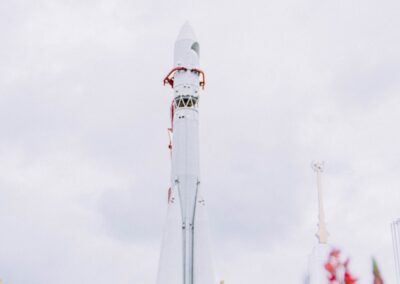The Intersection of Innovation and Ethics in Space Exploration
The Rise of Space Technologies and Ethical Dilemmas
Ethical considerations in space exploration have become increasingly significant as advancements in space technologies continue to push the boundaries of human capability. As nations like Saudi Arabia and the UAE embark on ambitious space programs, the exploration of extraterrestrial environments and the potential for space colonization raise profound ethical questions. These concerns highlight the need for a balanced approach that considers not only the technological and economic benefits but also the moral implications of our actions in outer space.
Saudi Arabia, with its Vision 2030 initiative, is making substantial investments in space technology as part of its broader goal to diversify its economy and foster innovation. This commitment includes exploring new frontiers and addressing the ethical aspects associated with space missions. By focusing on responsible space exploration, Saudi Arabia aims to ensure that its advancements in space technology contribute positively to humanity while respecting extraterrestrial environments.
Similarly, the UAE’s space program, which includes milestones such as the Mars Mission, underscores the nation’s dedication to leading in space exploration. As Dubai and Abu Dhabi continue to develop their space capabilities, they must also grapple with the ethical dimensions of their endeavors. This includes considering the impact on extraterrestrial environments and ensuring that their missions adhere to principles of sustainability and respect for space ecosystems.
Ethical Implications of Space Colonization
The potential for space colonization introduces a new layer of ethical complexity. As space technologies advance, the idea of establishing human settlements on other planets becomes more feasible. However, this prospect raises questions about our responsibility toward extraterrestrial environments. The principles of planetary protection and environmental stewardship must guide our actions to prevent contamination and preserve the integrity of other worlds.
For business executives and policymakers involved in space programs, addressing these ethical implications is crucial. Developing frameworks for responsible space exploration and colonization ensures that technological advancements do not come at the expense of environmental or moral considerations. By integrating ethical guidelines into their strategies, companies and governments can lead by example and promote sustainable practices in space exploration.
In Riyadh and Dubai, the integration of ethical considerations into space missions aligns with broader goals of leadership and innovation. These cities are not only advancing space technology but also setting standards for how such advancements should be managed. This approach reflects a commitment to ethical leadership and a recognition of the broader impact of space exploration on our collective future.
Future Directions and Ethical Leadership in Space Exploration
Looking ahead, the future of space exploration will require continued focus on ethical leadership and responsible practices. As space technologies evolve, so too must our understanding of their ethical implications. Ensuring that these advancements are guided by principles of respect, sustainability, and accountability will be essential for maintaining public trust and fostering international cooperation.
For entrepreneurs and business leaders involved in space exploration, there is an opportunity to shape the future by prioritizing ethical considerations. This involves not only addressing current challenges but also anticipating future issues related to space colonization and extraterrestrial impact. By leading with integrity and foresight, businesses can contribute to a positive legacy in space exploration.
In Saudi Arabia and the UAE, the commitment to ethical leadership in space exploration reflects a broader vision of progress and responsibility. As these nations continue to make strides in space technology, their approach to ethical considerations will serve as a model for others. Embracing these principles ensures that the benefits of space exploration are realized in a manner that respects both our planet and the wider cosmos.
Conclusion
Ethical considerations in space exploration are crucial as we advance in space technologies and contemplate the future of space colonization. By addressing the ethical implications of our actions, we can ensure that our pursuits in outer space are conducted with respect for extraterrestrial environments and a commitment to sustainability. Saudi Arabia and the UAE, with their innovative space programs, are at the forefront of this movement, demonstrating that technological progress can coexist with ethical responsibility.
As we navigate the future of space exploration, it is essential for business leaders, policymakers, and scientists to integrate ethical considerations into their strategies. This approach not only enhances the integrity of space missions but also sets a precedent for responsible and sustainable exploration. By leading with ethical foresight, we can ensure that our advancements in space contribute positively to humanity and the cosmos.
—
#EthicalConsiderationsInSpaceExploration #SpaceTechnologies #ExtraterrestrialEnvironments #SpaceColonization #EthicalImplicationsOfSpaceExploration #FutureOfSpaceTechnology #SaudiArabiaSpaceInitiatives #UAESpacePrograms #RiyadhSpaceTechnology #DubaiSpaceExploration































